
2046 is a 2004 film written, produced and directed by Wong Kar-wai. An international co-production between Hong Kong, France, Italy, China and Germany, it is a loose sequel to Wong's films Days of Being Wild (1990) and In the Mood for Love (2000). It follows the aftermath of Chow Mo-wan's unconsummated affair with Su Li-zhen in 1960s Hong Kong.
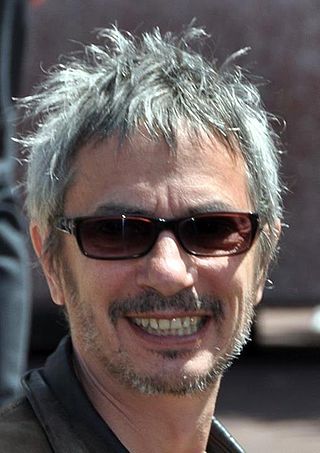
Alex Christophe Dupont, best known as Leos Carax, is a French film director, critic and writer. Carax is noted for his poetic style and his tortured depictions of love. His first major work was Boy Meets Girl (1984), and his notable works include Les Amants du Pont-Neuf (1991), Pola X (1999), Holy Motors (2012) and Annette (2021). For the last, he won the Cannes Film Festival Award for Best Director at the 2021 Cannes Film Festival. His professional name is an anagram of his real name, 'Alex', and 'Oscar'.

Pickpocket is a 1959 French film written and directed by Robert Bresson. It stars Martin LaSalle, in his feature film debut, in the title role, and features Marika Green, Pierre Leymarie, and Jean Pélégri in supporting roles. It features a pickpocket who is drawn to crime, despite the intercession of his family, his friends, and even an empathetic policeman.

Pablo Stoll is a Uruguayan film director and screenwriter.

Woman Is the Future of Man is a 2004 South Korean film directed by Hong Sang-soo. The film was not a box-office hit, but was entered in the competition category of the 2004 Cannes Film Festival and received screenings at several other festivals. The title of the film is a translation of a line from a poem by Louis Aragon that the director saw printed on a French postcard.

Bolivia is a 2001 Argentine and Dutch drama film directed by Israel Adrián Caetano, his first feature-length film. The screenplay is written by Caetano, based upon the Romina Lafranchini story, about his wife. The motion picture features Freddy Flores and Rosa Sánchez, among others.

Israel Adrián Caetano, known as Adrián Caetano, is an Uruguayan film director, producer and screenwriter.

25 Watts is a 2001 Uruguayan urban comedy drama film directed and written by Juan Pablo Rebella and Pablo Stoll. The independent film picture stars Daniel Hendler, Jorge Temponi, and Alfonso Tort. The film received a total of ten awards and three additional nominations, including Best Feature Film Award at the Rotterdam International Film Festival, Best First Feature Film Award at the Havana Film Festival, and others.
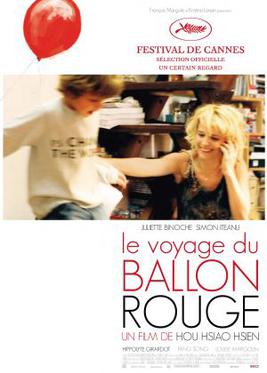
Flight of the Red Balloon is a 2007 French-Taiwanese film directed by Hou Hsiao-hsien. It is the first part in a new series of films produced by Musée d'Orsay, and tells the story of a French family as seen through the eyes of a Chinese student. The film was shot in August and September 2006 on location in Paris. This is Hou's first non-Asian film. It references the classic 1956 French short The Red Balloon directed by Albert Lamorisse.
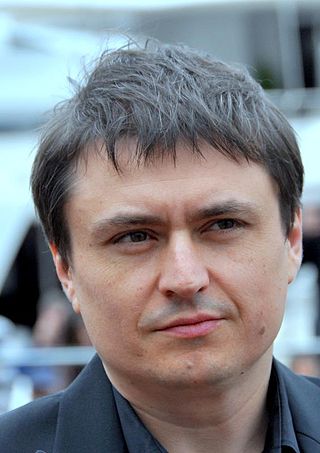
Cristian Mungiu is a Romanian filmmaker. He won the Palme d'Or at the 2007 Cannes Film Festival for his film 4 Months, 3 Weeks and 2 Days, which he wrote and directed. He has also won the awards for Best Screenplay and Best Director, at the 2012 and 2016 Cannes Film Festivals, for his films Beyond the Hills and Graduation.

Colossal Youth is a 2006 docufiction feature film directed by Portuguese director Pedro Costa. It was third feature by Costa set in Lisbon's Fontainhas neighborhood, and the first to feature the recurring character Ventura.
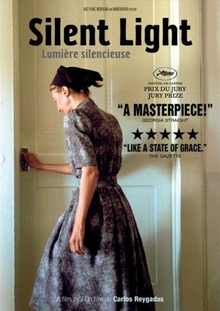
Silent Light is a 2007 film written and directed by Carlos Reygadas. Filmed in a Mennonite colony close to Cuauhtémoc, Chihuahua State, Northern Mexico, Silent Light tells the story of a Mennonite married man who falls in love with another woman, threatening his place in the conservative community. The dialogue is in Plautdietsch, the Low German dialect of the Mennonites. The film was selected as the Mexican entry for the Best Foreign Language Oscar at the 80th Academy Awards, but it did not make the shortlist. The film was nominated for Best Foreign Film at the 24th Independent Spirit Awards. It gained nine nominations, including all major categories, in the Ariel Awards, the Mexican national awards.

Dans Paris is a 2006 French romantic comedy-drama film written and directed by Christophe Honoré and starring Romain Duris, Louis Garrel, Guy Marchand, Joana Preiss, Alice Butaud and Marie-France Pisier.
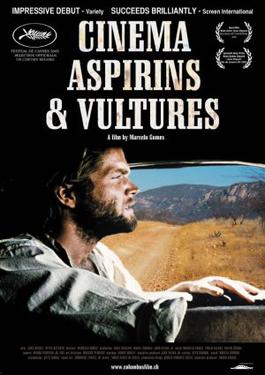
Cinema, Aspirins and Vultures is a 2005 Brazilian film directed and co-written by Marcelo Gomes. It was Brazil's submission to the 79th Academy Awards for the Academy Award for Best Foreign Language Film, but was not accepted as a nominee. It was also screened in the Un Certain Regard section at the 2005 Cannes Film Festival.
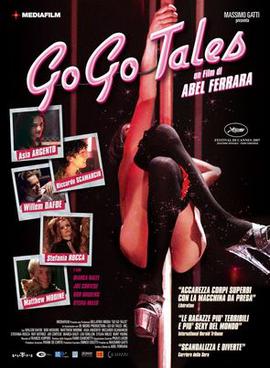
Go Go Tales is an independent 2007 film by Abel Ferrara. Ferrara based the film on The Killing of a Chinese Bookie, directed by John Cassavetes. It stars Willem Dafoe as a strip club owner and co-stars Bob Hoskins, Asia Argento and Matthew Modine. Ferrara had the cast improvise much of their lines. He described the film as his "first intentional comedy".
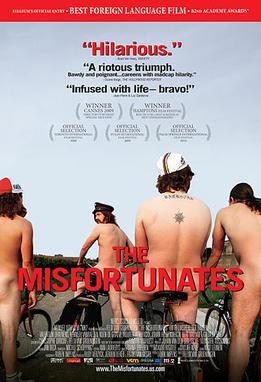
The Misfortunates is a 2009 Belgian comedy-drama film directed by Felix Van Groeningen. It is adapted from the 2006 semi-autobiographical novel of the same name by Belgian writer Dimitri Verhulst. The film stars Kenneth Vanbaeden, Valentijn Dhaenens, Koen De Graeve, Wouter Hendrickx, Johan Heldenbergh, Bert Haelvoet, and Gilda De Bal.

A Touch of Sin is a 2013 Chinese anthology thriller film written and directed by Jia Zhangke and starring Jiang Wu, Wang Baoqiang, Luo Lanshan, and Zhao Tao, Jia's wife and longtime collaborator. The film consists of four loosely interconnected tableaus set in vastly different geographical and social milieus across modern-day China, based on recent events while also drawing from wuxia stories and Chinese opera. The English title references A Touch of Zen. It was nominated for the Palme d'Or at the 2013 Cannes Film Festival, with Jia winning the award for Best Screenplay.

Boxing Gym is a 2010 American documentary film edited, produced, and directed by Frederick Wiseman. The film premiered at the 63rd Cannes Film Festival on May 20, 2010.
Murina is a 2021 internationally co-produced drama film, directed by Antoneta Alamat Kusijanović, in her feature directorial debut, from a screenplay by Antoneta Alamat Kusijanović and Frank Graziano. It stars Gracija Filipović, Leon Lučev, Danica Curcic, and Cliff Curtis. Martin Scorsese served as an executive producer under his Sikelia Productions banner.

Anaïs in Love is a 2021 French comedy film directed by Charline Bourgeois-Tacquet. The film was shown in the Critics' Week section at the 2021 Cannes Film Festival.



















